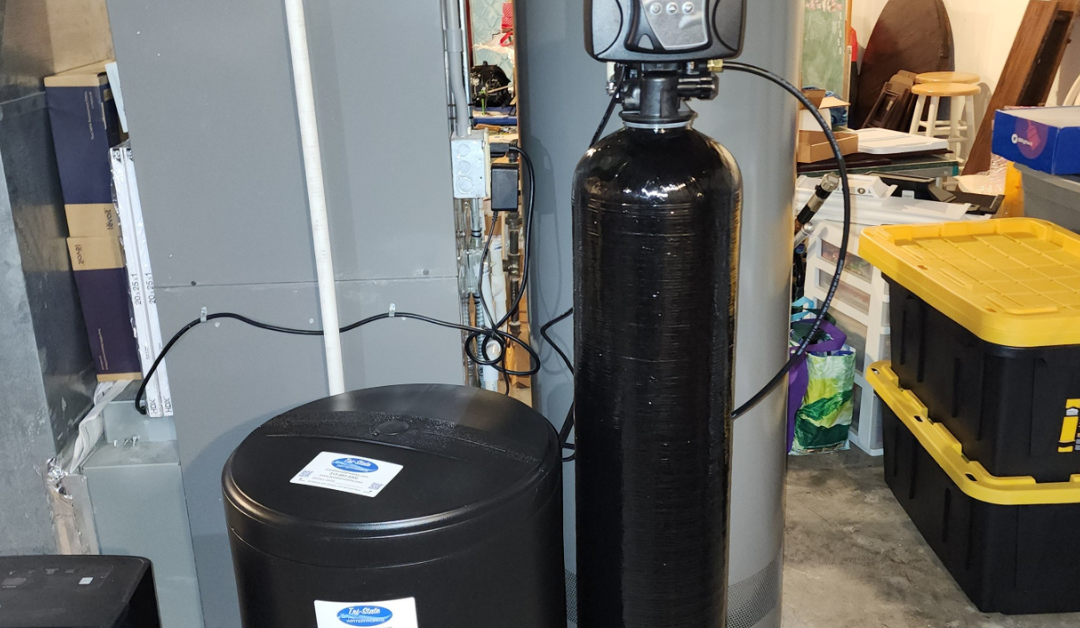Hard water – the bane of sparkling dishes, fluffy towels, and efficient appliances. It’s a common household nemesis, often leaving behind white film, dingy laundry, and a nagging feeling that your dishwasher and washing machine just aren’t performing their best. But beyond the frustration lies a hidden cost – it can significantly shorten the lifespan of your appliances, leading to expensive repairs or replacements down the line.
Let us delve deeper into the science behind hard water and explore its impact on your dishwasher and washing machine. We’ll also discuss ways to combat these effects and ultimately save money on appliances and detergents.
Understanding Hard Water
It is characterized by a high mineral content, primarily calcium and magnesium. These minerals are generally harmless to our health, but they can wreak havoc on your plumbing and appliances. As it flows through your dishwasher and washing machine, these minerals tend to precipitate out of solution, forming a stubborn scale known as limescale.
How Limescale Damages Appliances
Reduced Cleaning Performance
Limescale buildup can coat the spray arms in your dishwasher and the heating element in your washing machine, hindering water flow and heat transfer. This translates to dishes emerging with stubborn food residue and clothes coming out less clean.
Increased Detergent Use
It interferes with the effectiveness of detergents. To compensate for the reduced cleaning power, you might be tempted to use more detergent, which can be expensive and leave residue on your dishes and clothes.
Premature Wear and Tear
Limescale buildup can put extra strain on various components of your appliances. In dishwashers, it can affect the pump, heating element, and spray arms. Washing machines can experience scaling on the heating element, drum, and valves, leading to increased wear and tear and potential breakdowns.
Energy Inefficiency
With reduced heat transfer due to limescale buildup, your dishwasher and washing machine may have to work harder to achieve the desired water temperature. This translates to higher energy bills over time.
The Cost: Repairs and Replacements
The cumulative effect can significantly shorten the lifespan of your dishwasher and washing machine. Studies suggest that it can reduce appliance life by up to 30%. Replacing a major appliance can be a significant financial burden. Additionally, repairs might not be covered under your warranty.
Combating It and Saving Money
Fortunately, there are several ways to combat it and protect your appliances:
Water Softener
Installing a water softener is the most effective way. A water softener removes the calcium and magnesium ions, leaving your water soft and gentle on your appliances and plumbing. While there’s an upfront cost for installation, the long-term savings on appliance repairs and detergent use can be substantial.
Salt Alternatives
For those who prefer to avoid a traditional salt-based water softener, there are salt-free alternatives available. These options often use a process called template-assisted crystallization (TAC) to modify the mineral structure, preventing limescale buildup.
Dishwasher and Washing Machine Maintenance
Regularly cleaning your dishwasher and washing machine can help prevent limescale buildup. For dishwashers, run a cleaning cycle with a commercial dishwasher cleaner every few months. For washing machines, add a cup of white vinegar to the bleach dispenser and run a hot water cycle empty every few months.
Frequently Asked Questions
How Can I Tell If I Have Hard Water?
There are a few telltale signs:
- Soap scum buildup on dishes and shower walls, even after using plenty of soap.
- Dingy or stiff laundry after washing.
- White film on faucets and around drains.
- Difficulty lathering soap during handwashing.
If you are not sure of your water hardness, you can purchase a home water test kit or contact your local water utility company to inquire about the water hardness in your area.
Are There Any Benefits to Soft Water for My Appliances Besides Preventing Limescale Buildup?
Yes, soft water offers several benefits for your appliances:
Improved Cleaning Efficiency
Soft water allows detergents to work more effectively, resulting in cleaner dishes and clothes with less detergent needed.
Reduced Energy Consumption
With better heat transfer due to the absence of limescale, your dishwasher and washing machine can operate more efficiently, potentially lowering your energy bills.
Longer Appliance Lifespan
By preventing limescale buildup and the associated wear and tear, soft water can extend the lifespan of your dishwasher and washing machine, saving you money on replacements in the long run.
Will a Water Softener Affect the Taste of My Drinking Water?
A water softener removes calcium and magnesium, which can slightly alter the taste of your drinking water. However, many people find the taste of soft water to be preferable. Additionally, the health benefits of soft water, such as improved skin and hair health, often outweigh any minor taste difference.
Does Using Hot Water in My Dishwasher or Washing Machine Help?
While hot water can help dissolve some mineral deposits, it’s not very effective in preventing limescale buildup. In fact, excessive hot water use can damage your appliances over time. Installing a water softener will help.
While it might seem like a minor inconvenience, its impact on your appliances can be significant. Installing a water softener can help you protect your dishwasher and washing machine, saving money on repairs and replacements in the long run. Soft water not only improves the performance of your appliances but also extends their lifespan, ultimately saving you money and ensuring your dishes and laundry are always sparkling clean. If you are interested in installing a water softener in your home, call Tri-State Waterworks today.

